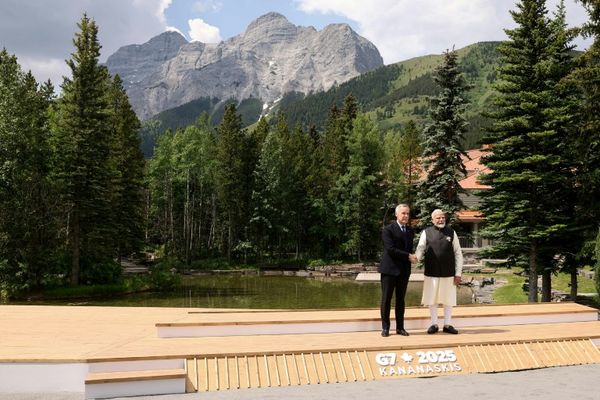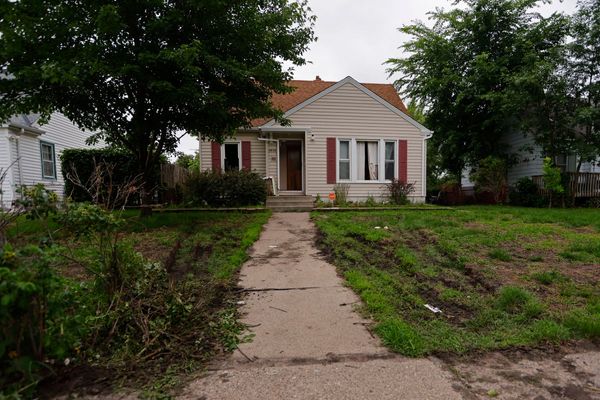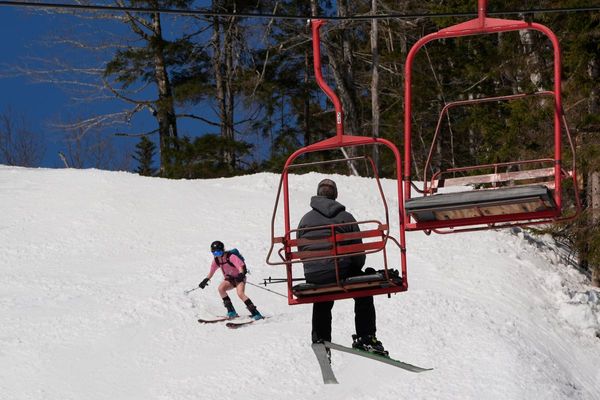
Traditional lethwei warrior leg tattoos are a dying art for Burmese fighters. For Canadian “King of Lethwei” Dave Leduc, he felt he had no choice but to get them.
“This is the ultimate respect for Myanmar, Now I’ve completed the Myanmar traditional look. I’m a real traditional fighter now,” he told the Post.
The tattoos are called Htoe Kwin and are “f****** painful” according to Leduc, which says a lot given he competes in a bare-knuckle kick-boxing sport that is considered the most brutal on earth. They were a rite of passage in Myanmar, symbolising strength and courage, and when boys entered those 30 hours of pain, they were seen as becoming men.
“I got the green light from my wife, it’s not fully done. It will be done after the fight,” says undefeated Leduc, who takes on UFC veteran Seth Baczynski for the vacant cruiserweight title at the World Lethwei Championship’s (WLC) King of Nine Limbs show on Friday at the Mandalar Thiri Indoor Stadium in Mandalay. For the first time, lethwei will be streamed globally on UFC Fight Pass, in what is a huge step forward for the sport.
“It was painful. I’ve done 15 hours, I’ve got 15 more to go,” Leduc said of getting the tattoos. “It’s a tradition I wanted to preserve, I think it’s beautiful. The people of Myanmar care about how painful it is. The machine is way more painful than bamboo.
“They don’t care how it’s done, though. We can do it with a hammer or a needle. We’ll see if you make a face. I kinda like that. I’m gonna hurt him [Baczynski] with half of the tats, can you imagine what I’d do with the full tats?”
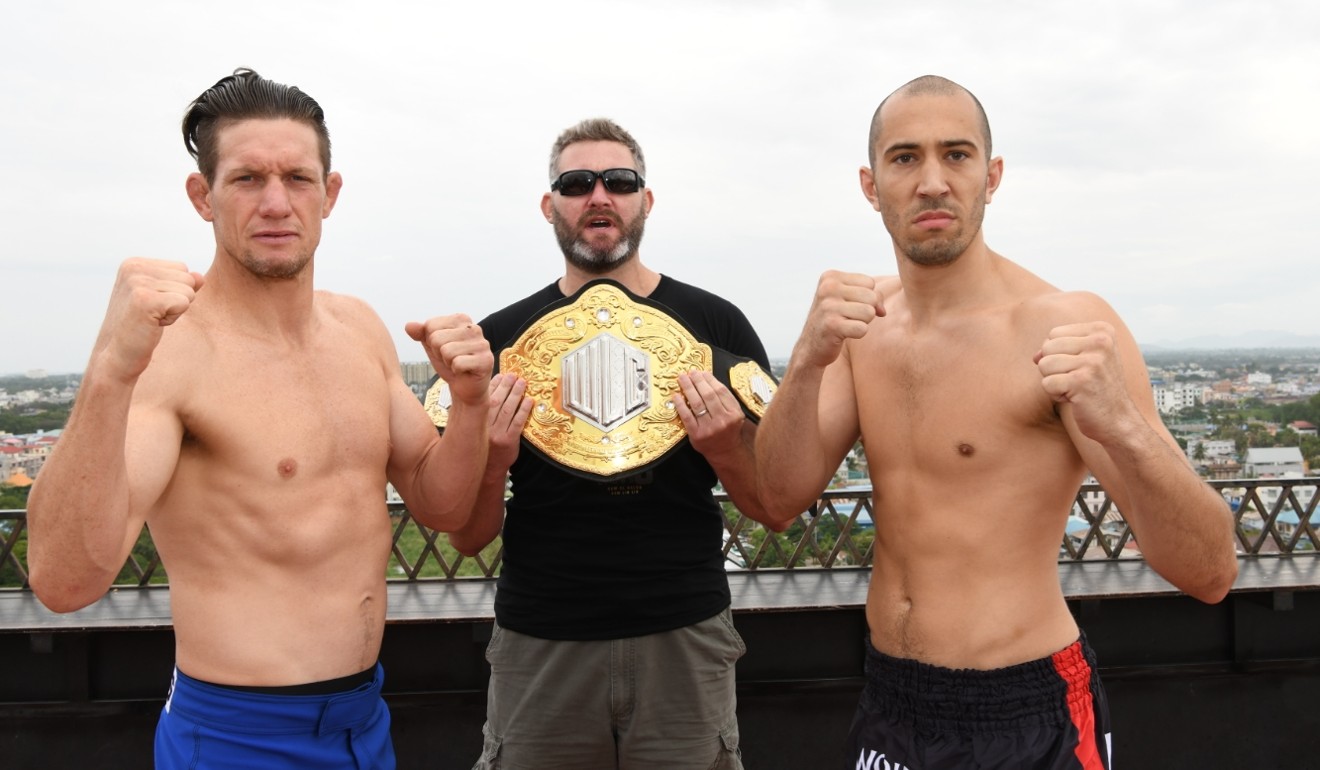
The 27-year-old Leduc’s transformation is nearly complete. He began his career as a mixed martial arts fighter in Canada, but moved to Thailand in 2016 to compete in Muay Thai. In 2016 he became the first non-Burmese fighter to win a lethwei world title, beating Tun Tun Min at the Aung Lan Championship in Yangon. He’s not looked back since.
His marriage in 2017 was streamed live on television and attracted a reported 30 million viewers in Myanmar, and now he can’t walk down the street without being mobbed. Although he self-deprecatingly suggests that’s more to do with his wife, Canadian writer and model Irina Terehova.
“When my wife is around me, they recognise me more,” he says, laughing. “When I’m with a tall blonde woman, they know right away it’s Dave.”
“It’s very humbling, I’m very grateful,” he adds. “It’s f****** crazy, the amount of love we get here is insane. I always wanted that so I can’t complain. That was the goal. I really enjoy it, it’s part of the game, the entertainment business. It’s really cool to be accepted so much as a foreigner. They don’t see me as a foreigner any more.
“It doesn’t matter where you’re born, they say, ‘We see it in your heart, you got married here, you train and teach lethwei to the world and bring fame and pride to our country’. So they really don’t care. They don’t care about race. It’s really fun to have that status here.”
It wasn’t always like this for Leduc. He spent years scratching around trying to build a following earlier in his career.
“It’s a big moment not only for me but the sport,” Leduc says. “The best way to put it, the first three years I was on my own, paying for videos, paying for posters – people don’t know the amount of work I had to do to build a team around me for interviews. They were like, ‘Oh yeah, I know Dave’ but they don’t know the amount of work that goes into that.
“Now I’ve been on podcasts Fox Sports, spoken to you guys – it used to be only for purists, very niche. To have lethwei now on a modern platform, a blood sport which is thousands of years old, is nothing short of an amazing feat.”
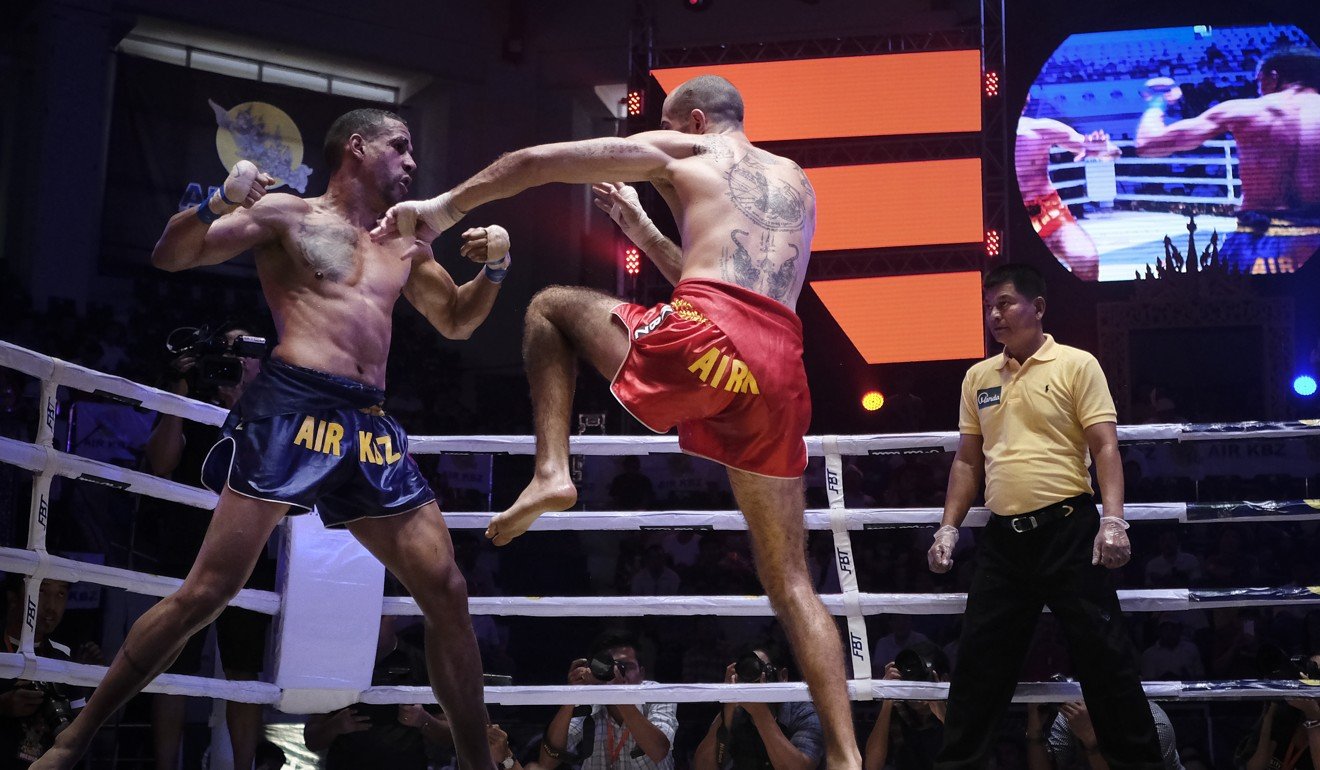
“It looks easy but it’s not,” he says. “There are lots of fight events on UFC Fight Pass, but to get a lethwei event is way harder than getting Muay Thai on there. It’s still a third world country, and the logistics are very hard to do this. We’ve done it.”
Leduc said that played into his decision to sign an exclusive deal with WLC in March, which saw him give up his titles in other organisations in Myanmar and Japan.
“I feel like together we’re unstoppable,” he says. “Myself and WLC joining forces to bring lethwei around the world is just the beginning. Most people I’ve talked to, as soon as they see lethwei they just say they love it.”
There were other offers on the table for Leduc from major promotions, but he said it soon become a clear decision to join WLC – and he gives Irina the credit.
“My wife is my best adviser,” he says. “Some people think, why put so much importance on the first lady of the US? But I can see because when you’re in bed and you talk and ask for advice it makes a difference the kind of person you have in your life.
“I had offers everywhere, in K-1 and Glory for kick-boxing. She said keep your vision. As a lethwei champion you have to stick to your game plan. If I don’t do it who is going to promote the sport to unprecedented heights? I have to stay in lethwei. One Championship wanted me to fight Muay Thai. I didn’t want to promote Muay Thai culture, I am Burmese at heart. Now my focus is to get the belt here but then we’ll see in the future. WLC really take care of me, it’s not hard for me.”
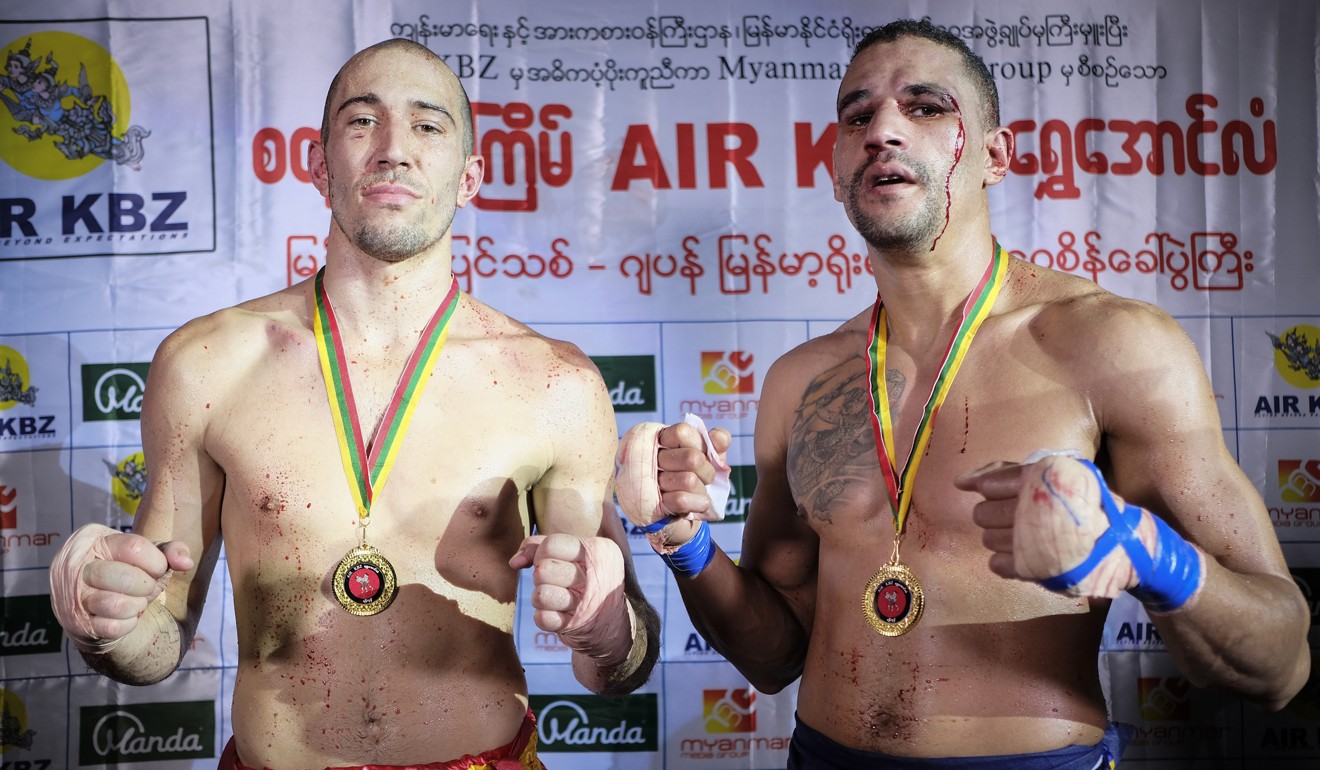
Leduc and his wife also star in the new series of network television show The Amazing Race Canada – and he’s happy to play the bad guy, because it just reminds him of his new loyalties.
“We’re hated like crazy because we’re un-Canadian in a way. I’m OK with that. I never felt at home there, I felt at home in Myanmar,” Leduc says. “The Myanmar people are one of the kindest, most generous and humble I’ve ever met in my life. They’re very happy to get interest in their culture, happy you’re here.
“Once they go in the ring they fight with headbutts – they’re the inventors of lethwei, it’s a big contrast. I think of myself as being a kind person as much as possible outside the ring, but if I go in the ring I do what I have to do. As soon as I stepped foot here I saw they go to extremes likes me, they’re kind but they fight in the most brutal, raw sport on earth. I like extreme. I never like to be normal. F*** normal. I’m the black sheep in life. I’m the weird one and I like that.”
Lethwei is brutal, bloody and brilliant. The violent moves that have been banned in big mixed martial arts promotions like the UFC, One Championship and Bellator are all legal in this sport.
“I find it so cool and raw to be fighting in the last remaining sport that allows headbutts and downward elbows, we still have that here halfway across the world so let’s take advantage,” Leduc says.
Friday’s fight is uncharted territory for Leduc. While he has felt pressure fighting lethwei before, now he’s not fighting a Burmese. He’s fighting an American with status in the UFC, and a former cast member of The Ultimate Fighter.
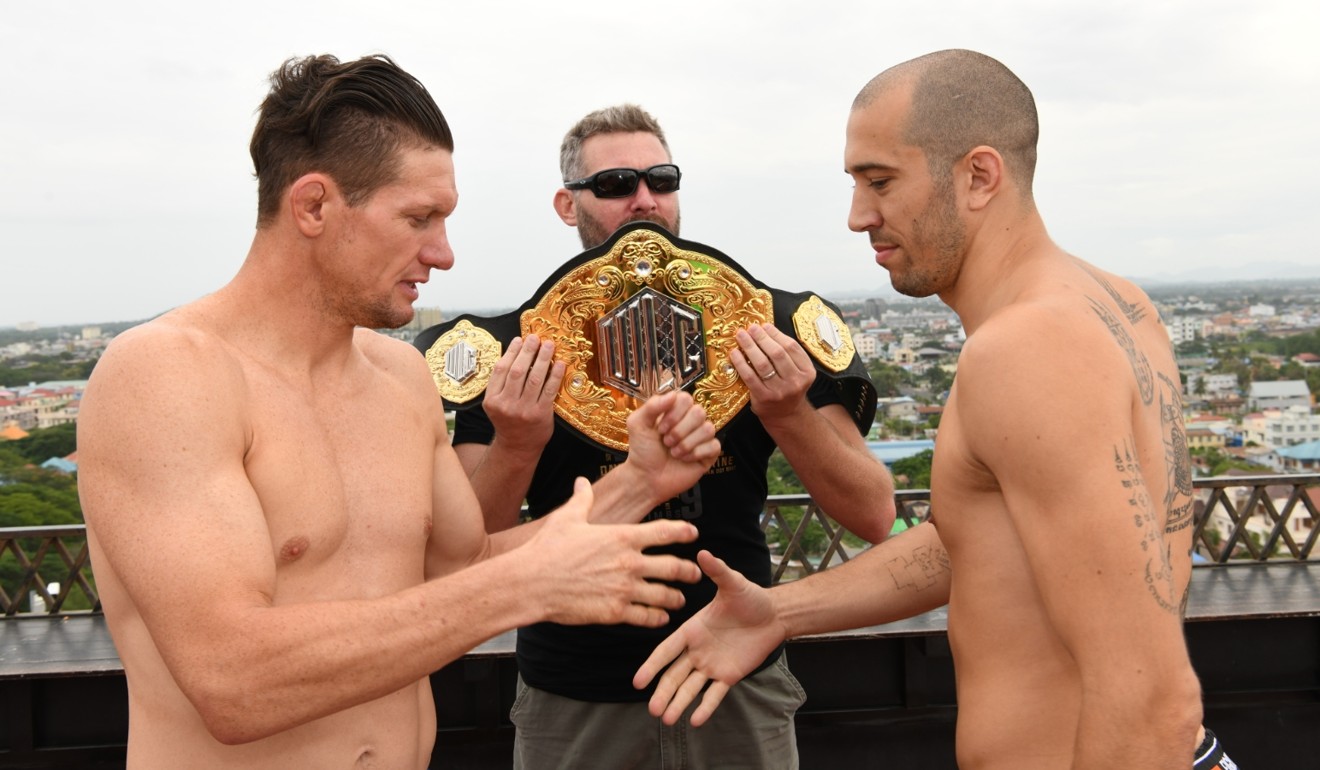
“I’m not just a foreigner any more, I’m representing the country and protecting the throne,” he says. “I’m just very proud to be representing the sport and the history. I think down the road, it’s already happening, enthusiasm is growing, I think it will bring economic growth to the country. Tourism is gonna grow because of lethwei.
“I spend most of time here with my wife. They kinda see that and they also like the idea I’m gonna beat the foreigner, protecting the sport of lethwei. From what I see they don’t see me as a foreigner. It’s a lot of pressure not only to win but to look good.
“I grew a lot from these fights in 2016, I had to adapt very fast and in 2018 I was a different fighter. I’m pretty proud I’ve been able to adapt in two years. These guys have been fighting since their teens. I think it’s a feat to be able to adapt in two years.”
Win or lose he will still be forever welcome in his adopted city.
“I guess I was born for this, but it’s weird,” he says. I’m born in a good family in Quebec. Nothing to complain about. Who knows, maybe I was born in Myanmar in another life. It seems like a fit.”


